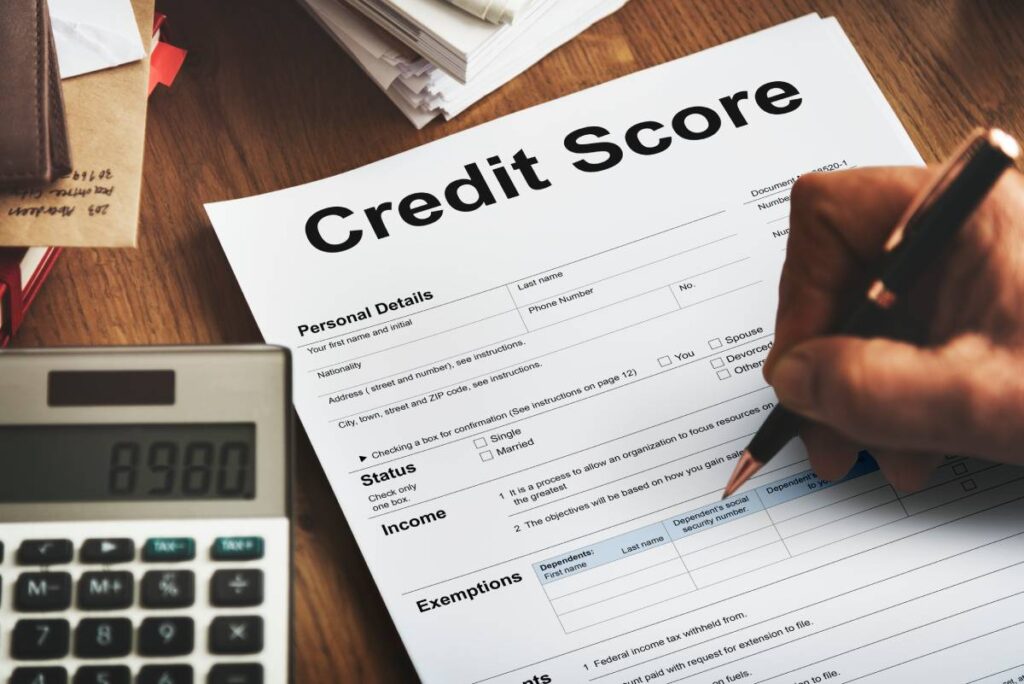The Finance Blog

Think You Know Your Credit Score? Here’s What Really Matters
Your credit score affects more than just loans. It can impact your ability to rent a flat, get a phone plan, or even land a job. But many people don’t fully understand how credit scores work or how to improve them.
That’s why it’s important to learn the credit score basics.
In this guide, we’ll explain what a credit score is, how it’s calculated, what a good score looks like, and how to keep it healthy. Whether you’re building credit for the first time or trying to raise your score, this article will give you clear and simple steps to take.
What Is a Credit Score?

A credit score is a number that shows how likely you are to pay back money you borrow. It’s based on your financial history and is used by lenders, landlords, and even employers.
The higher your score, the better you look to banks and credit companies.
In short, your credit score tells others how you manage your money.
Who Creates Credit Scores?
In the UK and many other countries, credit scores are created by credit reference agencies (CRAs).
These include:
- Experian
- Equifax
- TransUnion
In the US, scores are often based on the FICO score, which is created by the Fair Isaac Corporation. It’s used by most major lenders and ranges from 300 to 850.
Why Credit Scores Matter
Your credit score affects your financial future in many ways:
- Can you get approved for a loan?
- Will you pay more or less in interest?
- Can you get a credit card?
- Will your rental application be accepted?
- Can you finance a car?
A good score means more choices and better rates. A poor score can make life harder and more expensive.
Credit Score Basics: What Makes Up Your Score?
Let’s break down the main factors that go into your credit score. While different systems weigh things differently, most scores include the same elements.
1. Payment History (35%)
Do you pay your bills on time? Late payments, defaults, and missed bills can lower your score fast.
2. Credit Utilisation (30%)
This is how much of your available credit you use. If you’re using 90% of your credit card limit, that’s a red flag. Keeping usage below 30% is ideal.
3. Credit History Length (15%)
The longer you’ve had credit accounts, the better. Lenders like to see that you’ve managed credit over time.
4. New Credit Applications (10%)
Too many credit checks in a short time can hurt your score. Each application is a sign that you’re seeking more credit.
5. Credit Mix (10%)
Having different types of credit — like a credit card, a loan, and a mortgage — shows you can manage various kinds of debt.
What Is a Good Credit Score?
Credit scores are grouped into ranges. Here’s a simple breakdown:
| Score Range | Rating | Meaning |
| 800 – 850 | Excellent | You’ll get the best rates and offers |
| 740 – 799 | Very Good | Strong chance of approval for new credit |
| 670 – 739 | Good | Most lenders will approve you |
| 580 – 669 | Fair | You might get approved, but pay more |
| Below 580 | Poor | Hard to get approved without a co-signer |
Note: UK scores use different scales, depending on the credit agency. For example, Experian scores range from 0 to 999, and a score above 880 is considered “excellent.”
How to Check Your Credit Report

Your credit report is a detailed record of your credit history. It includes:
- Current and past loans
- Credit card balances
- Payment history
- Late or missed payments
- Public records like bankruptcy
You can check your report for free once a year (or more often in some countries). It’s smart to check regularly and look for errors.
If you’re curious about this process, read How Credit Reports Work and Why They Matter.
Improve Your Credit Score
Improving your score takes time, but it’s worth it. Here are simple steps to help:
1. Pay On Time
Always pay bills before the due date. Set up reminders or direct debit if needed.
2. Lower Your Credit Usage
Keep your credit card balance below 30% of the limit. If you can, pay it off in full each month.
3. Avoid Too Many Applications
Apply for new credit only when needed. Each check can lower your score slightly.
4. Keep Old Accounts Open
Long-term accounts show stability. Even if you don’t use an old credit card, keeping it open helps.
5. Check for Mistakes
Look at your credit report regularly. If something looks wrong, report it to the credit agency.
6. Use Different Types of Credit
If possible, manage both short-term (credit cards) and long-term (loans) credit.
Common Myths About Credit Scores
Let’s clear up a few things people often get wrong:
Myth: Checking your own score hurts it
Truth: This is called a “soft check” and does NOT affect your score.
Myth: Closing credit cards improves your score
Truth: It might lower your score by reducing your credit history and available credit.
Myth: You need to carry a balance to build credit
Truth: Paying in full is better. Interest costs money, and a zero balance is not a problem.
Myth: Income affects your score
Truth: Your credit score is based on credit behaviour, not how much you earn.
Credit Scores for Young Adults or New Users
Just getting started? Here’s how to build credit from zero:
- Get a student or secured credit card
- Use it for small purchases
- Pay the bill in full every month
- Keep usage low and avoid late payments
- Check your credit report to track progress
It takes time to build, but good habits pay off.
The Role of FICO Score
In many countries, the FICO score is the most widely used credit scoring model.
Lenders use it to decide:
- If they approve your application
- What interest rate to offer
- What your credit limit will be
Knowing your FICO score helps you prepare before applying for loans or credit cards. It gives a clearer view of your standing.
Take Control of Your Credit
Your credit score affects more parts of your life than you might expect. Understanding credit score basics is the first step to managing your financial future.
By learning how your score is built, checking your credit report, and building good habits, you can raise your score and enjoy better financial opportunities.
Learn more myth-busting facts in Common Credit Myths Debunked.









